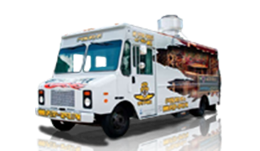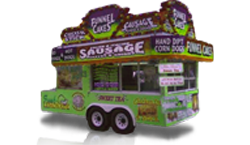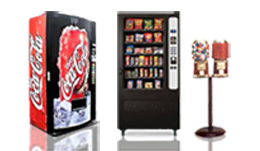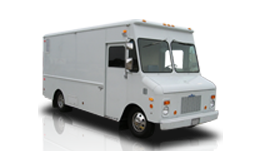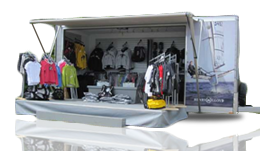Preparing for Winter: How to Protect Your Food Truck Equipment from The Freeze

When it seems like there’s one holiday after another and temperatures drop, you know that winter’s on its way. All seasons bring with them their own potential challenges, but winter can be particularly challenging if you’re not prepared, especially if you run a culinary business of any sort.
If you have a food truck or any kind of mobile kitchen, it’s not just holiday marketing ideas you need to come up with in order for your business to make it through the winter. You also have to take necessary precautions to protect your truck and your equipment throughout the colder months. Whether you’re thinking of putting your truck away or you’ll keep plugging along throughout winter, here are some important points you need to remember.
What’s Inside
How to Protect Your Food Truck Equipment During Winter
Make sure to keep up with your truck’s maintenance
If you’ve been busy throughout the year, it’s important that you stay on top of your truck’s maintenance. The most important thing is to check fluid levels: oil, brake fluid, transmission fluid, and power steering fluid. You should check antifreeze and radiator levels, too, and switch to cold weather protection motor oil for added protection.
Next, you’ll want to check your battery to make sure there are no leaks; after all, you don’t want to be stranded in the middle of nowhere when your truck won’t start. Don’t forget to have a mechanic inspect the truck, too, to make sure all hoses and fan belts are still in good condition because they’ll stretch or snap more easily in cold weather. Replace any hoses and belts that are noticeably worn out.
Check your tires
This is particularly important for those in areas that are prone to snow storms. When the weather is cold, air pressure in the tires will drop, and you wouldn’t want to risk a flat tire, or a tire blow-out. Check the treads to make sure they’re not worn out and ensure that the tires are properly inflated. In the best case scenario, you should be using snow tires, although all-season tires will work, too.
Take steps to ensure you can drive safely
Besides making sure the truck can run properly and safely, you’ll want to check the defroster, wipers, and heating system. You’ll need those to de-ice the truck and make sure the windshield isn’t obscured while someone’s driving in cold weather. Make sure you also have extra engine oil and washer fluid, to ensure you don’t run out.
Prevent rust
You wouldn’t want any part of your truck to rust, especially the hinges, since that could affect the truck’s appearance and make it hard for you to open the doors. So to prevent that from happening, spray crevices, hinges, and anything shiny with some WD-40 or any sort of rust-inhibiting coating. If you’re thinking of having the truck washed and waxed at some point, apply the coating a few days before then.
Add sources of heat
It’s not just the number of customers that will get affected by winter temperatures. Your workers and the food being prepared will also be affected. So install heaters inside the back part of the food truck, if you haven’t already done so. This will make sure that employees stay comfortably warm during the colder months. Consider investing in special equipment like warming plates, too, to keep hot dishes at the temperature you need them to be.
For added safety, you’ll want to use an electric heater or two rather than propane-powered ones, since the former would be less dangerous than the latter. Just make sure you have a way to power said electric heater (or heaters).
Reduce chances of injury in the back
Optimally, most of your kitchen equipment and any shelving systems should be bolted securely to either the floor or the walls, and loose items secured in some way. This way, whenever you drive, any employees riding in the back won’t get hit by anything heavy or sharp and nothing gets knocked over. This is especially important when the roads start icing over even just a little.
Making sure all your equipment can’t hurt you or your employees when the truck is in motion isn’t just for your safety. Remember that how well you take care of your equipment will also affect how long they last and how long they can continue to function without issues. So you’re not just keeping employees from injury; you’re also keeping your equipment from getting too banged up and damaged to work well, and ensuring that you didn’t waste money on that equipment only to have to buy a replacement.
Ensure the back area is sanitary
We’re sure you already wash all your equipment properly at the end of the day and make sure everything is clean before storing them. However, you’ll want to be extra careful and check that there’s no food left in any containers, in the fryer, and so on. If left alone for long enough, leftover food could wind up spoiling over time, even in a cold environment.
Take some time to ascertain that the inside of the oven is completely dry; the same goes for any refrigeration units if you’ll be emptying them while your food truck business takes a winter break. Moisture can lead to mold growth, because not only is that unsanitary, but it can affect the equipment, too.
All in all, it doesn’t take a sanitation professional or mechanic to know how to protect your food truck and the equipment throughout winter. In fact, it’s similar to caring for any vehicle you own, plus taking care of appliances in your home kitchen. Make the effort, and you’ll be rewarded with not just a truck, but equipment that’s still functioning well when winter ends.


